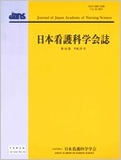Japanese
English
- 販売していません
- Abstract 文献概要
- 参考文献 Reference
要旨
目的:自由記載を分析して家族ピア教育プログラムの質的評価をすることを目的とする.
方法:質的記述的研究である.自由記載のデータは,2013年10月から年度内にプログラムを終了した38カ所の参加家族と担当家族に調査を行い,収集した.自由記載を「家族学習会について参加あるいは担当して思ったこと,変わったこと」という視点で質的記述的に分析するとともに,参加家族と担当家族の属性を把握した.
結果:質問紙は,参加家族163名と担当家族133名から返送された.自由記載から10のカテゴリと41のサブカテゴリが作成された.参加家族は担当家族よりも家族会会員歴が短く,教育歴が少なく,発病後経過年数に幅があり,自宅療養の本人を支援する人が多かった.
結論:自由記載から療法的因子,体験的知識,社会変革機能といったグループ機能と新たなアイデンティティの獲得といったアウトカムを見出した.参加家族の属性が変化し,長い経過の家族も含んでいた.
Purpose: We aimed to evaluate a family peer-education program on mental disorders qualitatively through an analysis of free-response descriptions.
Methods: The study used qualitative descriptive methods. The free-response descriptions were collected by a questionnaire survey that was conducted to family participants and family facilitators of the program course that ended between November 2013 and March 2014. We performed qualitative and descriptive analyses on the free-response questionnaire item in terms of what you thought and what changed for you as a result of participating or facilitating the program. We also grasped the demographics of family participants and family facilitators.
Results: The questionnaires were sent back from 163 family participants and 133 family facilitators. Ten categories and 41 subcategories were extracted from the free-response descriptions. Compared to family facilitators, family participants had shorter durations of membership in family groups, less education about mental disorders, a wider range of disease history, and more housebound family members with illness.
Conclusions: From the free-response descriptions, we identified group processes of therapeutic factors, the spread of experiential knowledge, and a growing desire to change society. We also identified that some family facilitators reported acquiring new identities. The demographics of family participants were different from those of a prior survey in that the present participants had a higher number of ill members with a longer history of disease.
Copyright © 2015, Japan Academy of Nursing Science. All rights reserved.


